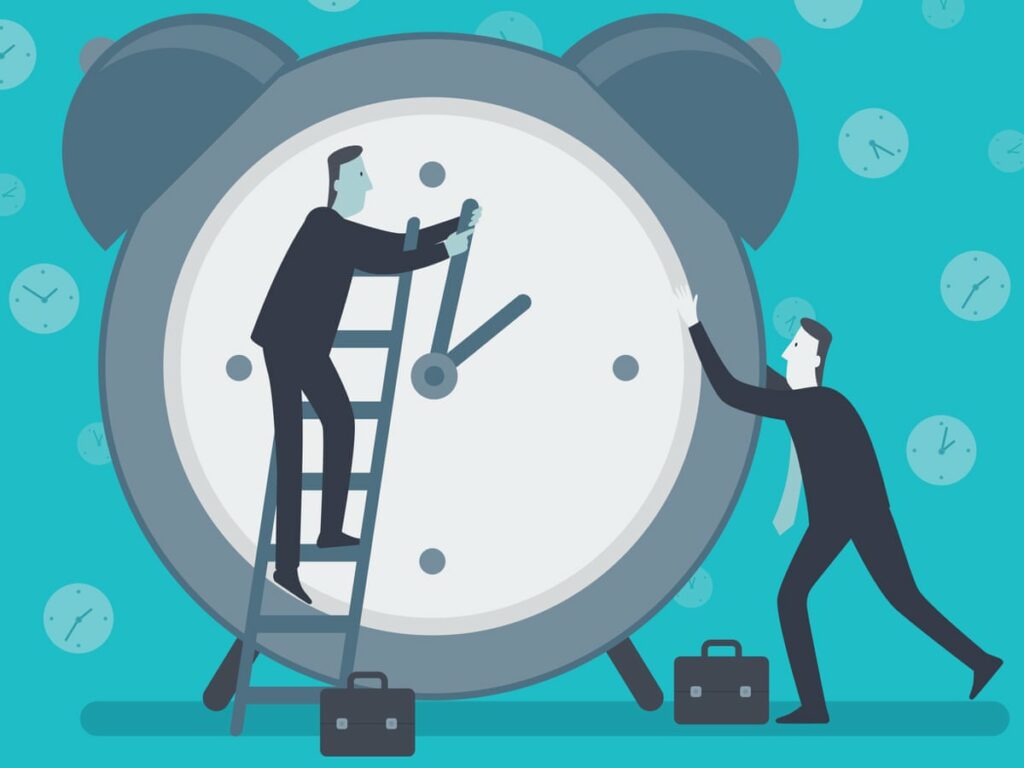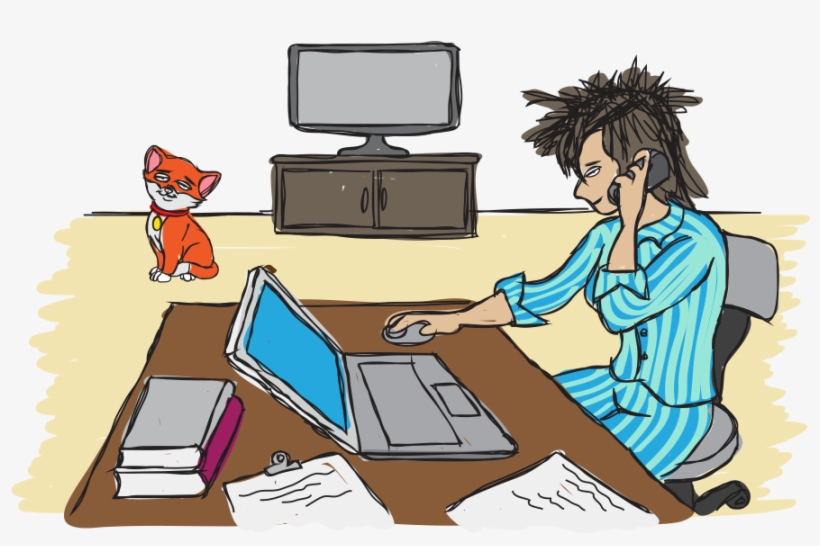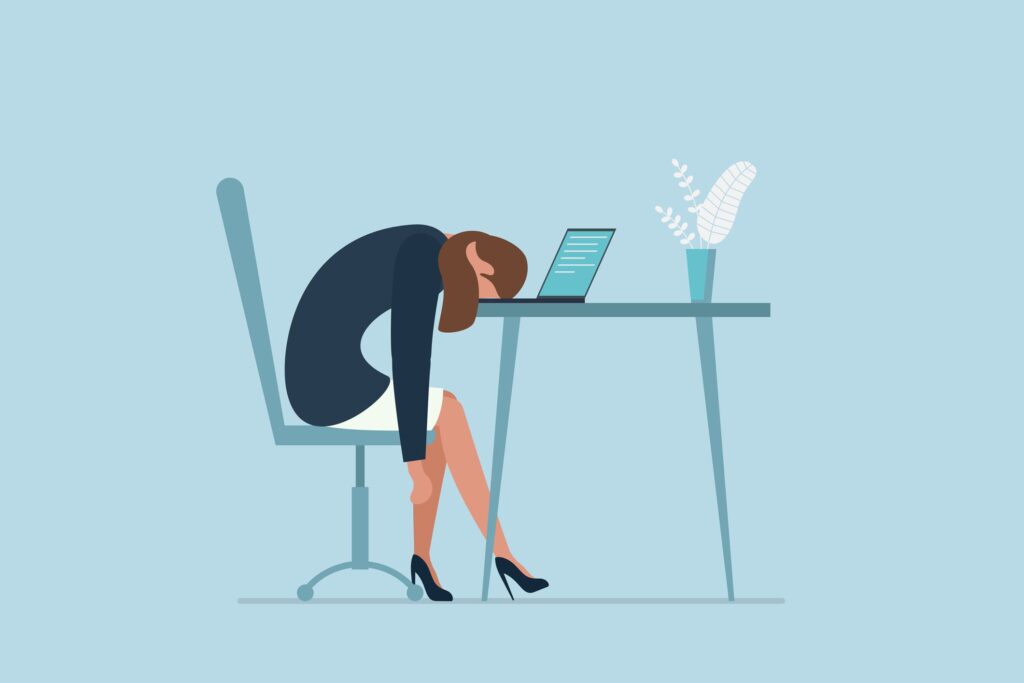Contents
What Are Unsociable Working Hours?

Unsociable working hours are the times when employees are required to work. It is not socially acceptable for them to do so. The most common types of unsociable working time include early mornings, late evenings, and weekends. This type of shift requires an employee’s attendance outside of the normal “office hours”.
A study found that a staggering 1 in 4 people is feeling constantly stressed. And this isn’t surprising when you consider the findings of a survey commissioned by mental health charity Mind. It also reveals that two-thirds of you feel under pressure at work. It is more than half have experienced anxiety or depression while at work.
But what is it about working life today? Its long hours, shrinking job security, and ever-increasing workloads. Is it causing such high levels of stress? The answer may be surprisingly simple. We spend too much time working unsociable hours. So let’s take a look at how working unsociable hours can lead to higher levels of exhaustion, burnout, and general dissatisfaction with life. That’s why this may put you at increased risk of mental health problems.
What Is Link Between Unsociable Working Hours And Mental Health?

Unsociable working hours refer to the (non) availability of time slots. It is during which employees are able to work. According to official statistics, 7-8 million people continue to work unsocial hours. This definition doesn’t include self-employed or part-time workers. They are who often still have fixed office hours but simply don’t work these during normal business hours. For example, someone who only works in the early mornings.
Over the years being ‘in office’ outside of 9 am-5 pm has become increasingly uncommon. It is even in countries where it was previously widespread. The ‘out of office’ email message became a standard sign-off in the late noughties. It is now more common for people to check their work emails from home or even whilst on holiday. This causes employees to be ‘on call’ 24 hours a day.
A research was conducted. It was found that almost half (45%) of all knowledge workers say they never fully unplug from work. 38% of people report feeling overwhelmed. It is by the sheer volume of information they process each day.
The link between unsociable work hours and mental health has been studied before, but research so far has been limited. Without a doubt, there’s a strong link between both variables. There has been a lack of research that studies the relationship from both perspectives.
Studies have shown that working unsociable hours may be a risk factor for mental health problems. Whereas, this hasn’t been studied yet is how working unsociable hours can also be a symptom of a mental disorder. These disorders can be depression or anxiety.
Benefits of Unsociable Working Hours

- People who work out of office hours might increase their chances of upward mobility and promotion. They will also likely earn higher salaries than if they worked standard hours. Now many companies consider that flexible workers have higher motivation and dedication.
- Also, those who work outside normal working hours often report feeling more satisfied with their job. This is because it gives them the chance to do extra tasks. These tasks were not possible during regular business hours. They were not possible during spending time with family or friends. It was possible without having to feel guilty about it.
- If they put in enough overtime this may even result in their earning and pay rises.
Disadvantages of Unsociable Working Hours

However, although there may be some benefits for those who can work out of office hours. It is important to emphasize that not all employees will find this to be the case. Problems digesting ‘distorted’ time zones have been known to affect many expatriates around the world. This means that employees could potentially suffer problems. It is when they switch between different time zones when somebody simply changes their time zone. This is due to the body needing some time to adjust to the new schedule.
There is another major disadvantage of working outside of ‘normal’ hours. It is that it can lead to an increased risk of accidents or injuries occurring at work. Employees are often fatigued after long working hours. This may have implications for driving home after late shifts. For example, leading to an increased risk of car accidents or other incidents on the road.
Risks of Unsociable Working Hours

The main risks associated with working outside of the normal 9-5 pm hours are fatigue and absenteeism. Workers who work longer hours tend to take more sick days. They can experience a smaller reduction in their productivity as they become increasingly exhausted. Also, people who work outside of regular business hours face potential health problems. These problems can be such as obesity and cardiovascular disease.
In addition to the potential effects on an individual worker’s personal life, working out of office hours can affect people in charge. It makes it difficult for managers to manage their teams effectively. This also results in reduced motivation among employees. It is for those who feel they aren’t being managed properly. This can also mean that some employees might become less willing to work extra hours. It is something that many companies expect of their employees.
How to Manage Unsociable Working Hours?
It is important to note that not all employees will find it beneficial to work outside of regular business hours. This means that there are some disadvantages which managers need to take into consideration. The main risk associated with working outside of the normal 9-5 pm hours is fatigue. Working out of office hours can cause people to experience health problems like obesity and cardiovascular disease.
It is suggested that employers should encourage employees to look after themselves during working hours. It is by providing relaxation sessions, free food, opportunities for napping, etc. Another major factor that can affect mental health is the amount of stress felt in the workplace. It is recommended that employers create ‘quiet spaces’. It is where staff can take time out for themselves. This is in order to avoid feeling stressed or anxious about work. Managers should also share workloads with their employees. It is possible and provides support via training courses. It is when they are struggling to manage the demands of their employees. These are employees who work outside of office hours.
Tips To Manage The Working Hours

- Encourage staff to look after themselves by providing relaxation sessions, free food, facilities for napping, etc.
- Designate ‘quiet spaces’ where staff can take time out for themselves.
- Create opportunities for staff members to share their workloads with colleagues
- Provide support for managers by offering them training to help them deal with the issues faced. It is when trying to manage staff who work unsociable hours.
- Employees should be required to give notice if they wish to work outside of their usual working hours
- Employers can consider scheduling meetings at different times each day so as not to disrupt employees’ sleeping schedules. This will hopefully minimize the number of late and early starts that occur
- They also need to ensure that colleagues who do not wish to work unsociable hours avoid doing so. If possible, managers could try working alongside their staff during unsociable hours. This is in order to gain a better understanding of how it affects them mentally and physically. This way, managers will be able to plan the workload according to the capabilities of each individual employee. They will also be able to see firsthand why some employees may work better during these times than others.
- Employers want employees to give notice before they allow them to work outside of regular business hours. By doing this, employees will be able to set boundaries between their personal and professional lives. It is instead of letting their jobs negatively affect everything else.
- Most companies claim that they value their employees’ health and well-being. They often neglect the subject when making operational decisions. It is essential for companies to encourage employees to look after themselves. It is by providing relaxation sessions or free food. This can help decrease burnout rates among employees who work outside of office hours.
A Word From Mantra Care
Many companies depend on their employees putting in extra hours. This is because it has an impact on production levels. It also affects business profitability. However, managers need to be aware that there are potential health risks involved. It is with employees spending too many unsociable at work (e.g., fatigue, stress, burnout). Employers should encourage a healthy work-life balance and regular working hours. Although it is not always possible to keep regular business hours in many companies around the world. Managers need to be aware that their employees still have personal lives which they need to take care of. Also, employers should try and reduce the number of times workers have to change time zones in a short period of time. It is because this often leads to fatigue and jet lag.
Do you want to keep your employees happy, healthy, and productive? Join our employee assistance program and get a healthier workplace.


